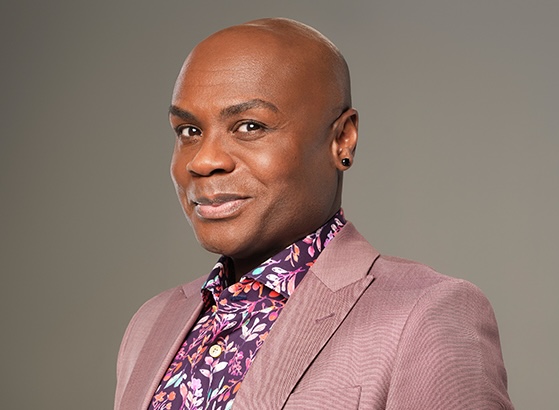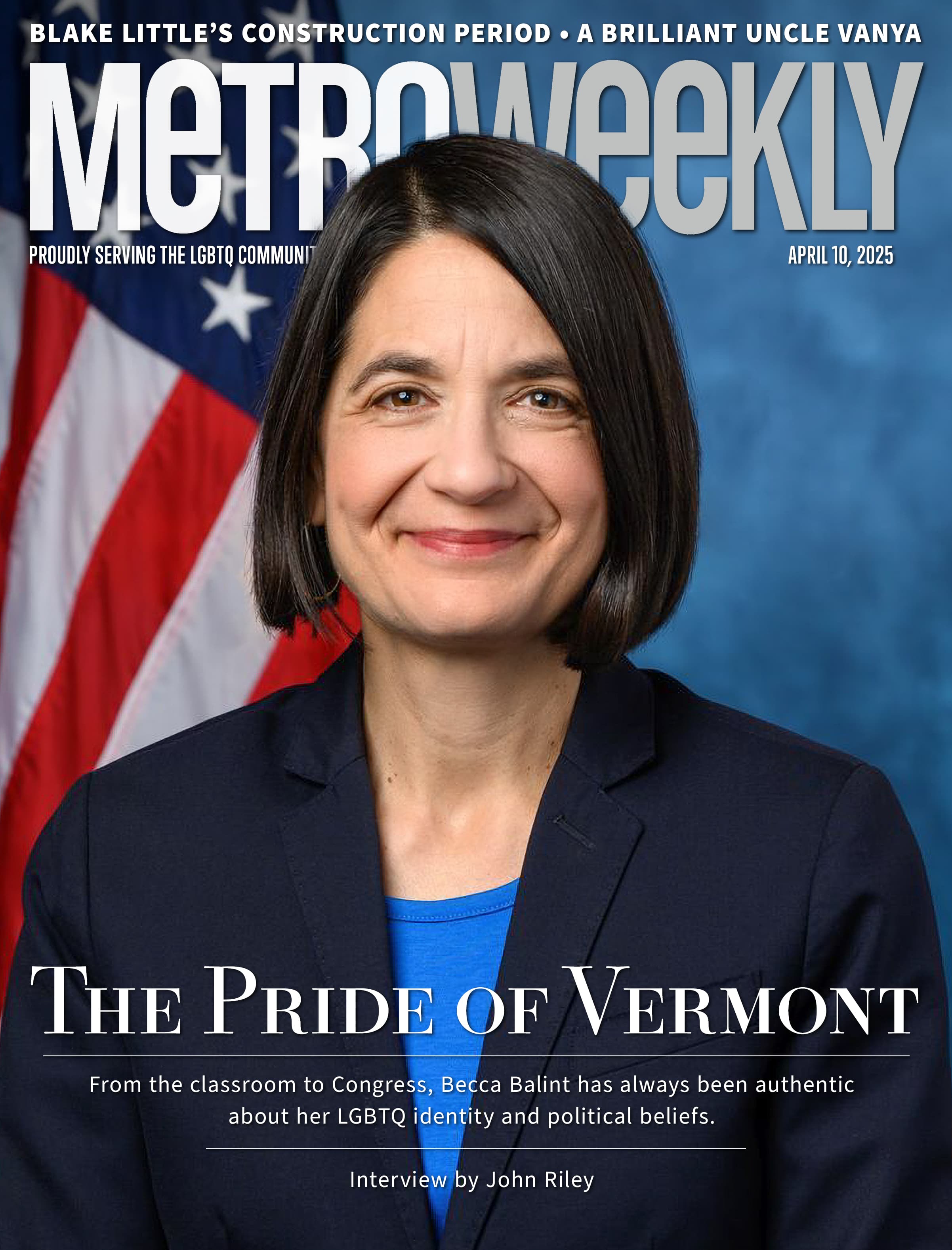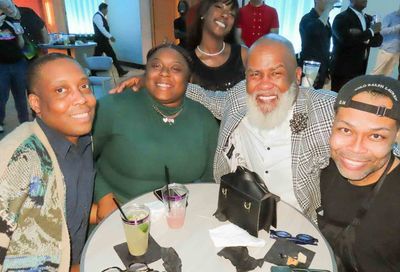Liza Minnelli Gets Her Due in a Vivacious New Documentary
"Liza: A Truly Terrific Absolutely True Story" vibrantly celebrates the career of one of our greatest entertainers.
By André Hereford on March 7, 2025 @here4andre

Defying the adage that the lady needs no introduction, Bruce David Klein’s captivating documentary Liza: A Truly Terrific Absolutely True Story extends a four-minute introduction to its larger-than-life subject Liza Minnelli before the film truly enters the breach, touching down on June 22, 1969, the day her mother Judy Garland died.
In the midst of the preamble performance clips — presenting Liza as a gangly ingenue onstage with her mother, and as a superstar commanding the world’s stages on her own — Klein runs amusing outtakes of Liza, present-day, sitting for interviews but not at all passively. Dressed in head-to-toe black, her trademark pixie cut topped by a newsboy cap, she commands the room tenaciously, directing the cameraman on how to shoot her.
As she reminds us, speaking into camera, she might be her mother’s daughter, but there’s a lot of her father, Oscar-winning director Vincente Minnelli, in her, too. He was a tyrant on set, she says, and she appears to enjoy playing the role for the benefit of Klein’s crew.
It might be, in that five minutes the film tells us almost all we need to know. Born of Garland’s irrepressible talent and drive, and Minnelli’s studio-honed polish and precision, Liza, a daughter of MGM, lived up to her lofty destiny. But her path from Hollywood’s most famous infant to conquering stage and screen was far more complicated and compelling than that.
According to friend Jim Caruso, who performed with Liza in her Tony-winning 2008 Broadway comeback Liza’s at the Palace, her parents might have laid the blueprint, but it was her godmother Kay Thompson who made LIZA possible.
Intimate home movie footage depicts the closeness between Liza and Thompson, the performer, songwriter, Eloise author, and former vocal coach and confidant to Garland who swept in like Auntie Mame to care for and protect Liza after her mother died. An oft-unsung pioneer of 20th-century pop culture, Thompson joins Garland and Vincent Minnelli on the list of pivotal artistic influences that shaped Liza’s career.
Liza has always had a good eye for “picking people to be around,” she informs us. Proceeding in chapter form, the film follows the thread of important mentors and muses in Liza’s life, from Thompson to French pop idol (and apparent friend-with-benefits) Charles Aznavour, to Cabaret creators John Kander and Fred Ebb.
With every chapter, the movie dances through a moment of sincere appreciation for her mentors’ art, too — for Aznavour, for Bob Fosse, and, of course, Liza’s platonic soulmate, Halston. The movie captures comprehensively, and often in the artists’ own words, how Liza has traveled her decades-long journey through public life in the company of icons.
The film sources several golden nuggets straight from the respective horses’ mouths, like Aznavour’s pithy description, en français, of his relationship with Liza — we are more than friends and less than lovers. Song historians and Frank Sinatra fans alike should enjoy the clip of Ol’ Blue Eyes, onstage with Liza, introducing a performance of “New York, New York,” noting that she did the song “before anybody,” including him, but, “Then I had to stick my nose in it.”
Beyond the vintage clips and news footage portraying each era, Liza’s personal details are rendered warmly through the eyes and observations of those who know her best now. Drawing on accounts from friends and family — Michael Feinstein, Mia Farrow, Ben Vereen, Jim Caruso, Joel Grey, sister Lorna Luft — the film locates the human being behind the pixie cut and sequins.
Although, this is no tell-all dive into the star’s scandalous past. In another reminder that Liza is her parents’ daughter, Caruso points out that she was raised with the Hollywood studio mentality that you smile for the public. You won’t see Liza dishing dirt on-camera, he says.
Indeed, she doesn’t. Liza sometimes lets her guard down, and isn’t afraid of telling it like it is — as in a moment with girlfriends Michele Lee and Marisa Berenson talking about their past men, when Liza interjects, “And some of them weren’t men at all!” — but she keeps her private life to herself.
At one point, she even vehemently claims that neither she nor any of her celebrity friends were doing drugs at Studio 54. Sure, Liza. The movie does take a cursory, headline-oriented look at the star’s struggles with substance abuse, but without offering much insight into her experience or recovery.
It’s Liza’s friends who keep offering major reveals, like Ben Vereen, moved to tears watching home movie footage of him and Liza hanging out in the ’70s, suddenly declaring his undying love for her. Or Mia Farrow offering then-husband Sinatra’s unvarnished opinion of Liza’s performance style when she first started out: Not everything has to be the national anthem.
Farrow, a fellow daughter of MGM and friend since pre-school, turns out to be a font of fabulous quotes and casual, first-person recollections of some of the most famous people who ever lived. Her insights add to the movie’s overall archival importance, while also summoning genuine, pure admiration for Liza’s talent, artistry, and perseverance.
Liza: A Truly Terrific Absolutely True Story (★★★★☆) is playing for a week in theaters through Thursday, March 13. In our area, it’s at The Avalon Theatre, 5612 Connecticut Ave. NW (director Bruce David Klein will be in-person for a special screening on Friday, March 7, at 7:30 p.m. where he will be doing a Q&A following the movie), and at Cinema Arts Theatre, 9650 Main Street in Fairfax, Va., where there will be another special screening Saturday, March 8th at 2:30 p.m. followed by a Q&A with Klein.
The Commanding Style of Nathan Lee Graham
As Arthur Broussard, "Mid-Century Modern's" Nathan Lee Graham slays the assignment in his own inimitable style.
By André Hereford on March 31, 2025 @here4andre
With the well-timed arch of an eyebrow, or just a sharp glance, Nathan Lee Graham can command a scene in silence, well before he unleashes some artful, perfectly enunciated turn of phrase.
The actor has been brandishing his enviable diction and expressive mien for decades on Broadway, in The Wild Party and Priscilla, Queen of the Desert, in films from Zoolander to Theater Camp, and on TV shows, like the new Hulu sitcom Mid-Century Modern, where he stars with Nathan Lane and Matt Bomer as three mature gay friends who move in together à la The Golden Girls.
‘Boop! The Musical’ Is Broadway’s Happiest Surprise
Jasmine Amy Rogers makes a confident and dynamic Broadway debut in this vibrant revival of a timeless cartoon icon.
By Ryan Leeds on April 20, 2025
Theater suggestions are part of a critic's job. So when a friend sent a text asking for a recommendation to take his visiting mom to -- "something joyful" on Broadway was the requirement -- I didn't waste a moment responding: Boop! The Musical.
It may seem a surprising answer because the property upon which it's based comes from a cartoon that was popular from 1930 to 1939. Nevertheless, Betty Boop has endured, accumulating legions of cross generational fans and becoming one of the most globally recognized animated figures of all time.
Director and choreographer Jerry Mitchell, who has a knack for leaving audiences on a natural high after all his shows, once again brings literal glitter to a work that makes us long for the days when nearly every old-fashioned musical delivered big thrills.
This Week’s Advertisers: Rep. Becca Balint – April 10, 2025
Please support our advertisers in the April 10 edition featuring Congresswoman Becca Balint of Vermont on the cover.
By Randy Shulman on April 12, 2025 @RandyShulman
Metro Weekly is an independent advertiser-supported magazine and website.
Please support our advertisers and help keep LGBTQ journalism strong. Click the links below to the individual advertisers in our most recent issue, browse the magazine above, or Click Here to open the issue in full.
Arts & EntertainmentBethesda Fine Arts Festival
Mosaic Theatre: cullud wattah
Signature Theatre: In the Heights
The Smithsonian Craft Show
Washington National Opera: The (R)evolution of Steve Jobs
Special EventsBethesda Fine Arts Festival
Support Metro Weekly’s Journalism
These are challenging times for news organizations. And yet it’s crucial we stay active and provide vital resources and information to both our local readers and the world. So won’t you please take a moment and consider supporting Metro Weekly with a membership? For as little as $5 a month, you can help ensure Metro Weekly magazine and MetroWeekly.com remain free, viable resources as we provide the best, most diverse, culturally-resonant LGBTQ coverage in both the D.C. region and around the world. Memberships come with exclusive perks and discounts, your own personal digital delivery of each week’s magazine (and an archive), access to our Member's Lounge when it launches this fall, and exclusive members-only items like Metro Weekly Membership Mugs and Tote Bags! Check out all our membership levels here and please join us today!
The Magazine
-
Most Popular
 Gallery: Blake Little's Breathtaking 'Construction Nudes'
Gallery: Blake Little's Breathtaking 'Construction Nudes'  Youngkin Demands Gay Candidate to Exit Race Over Nude Photos
Youngkin Demands Gay Candidate to Exit Race Over Nude Photos  Feds Launch “Snitch Line” Targeting Trans Healthcare
Feds Launch “Snitch Line” Targeting Trans Healthcare  'Smash' is Broadway's Gift to Theatergoers Everywhere
'Smash' is Broadway's Gift to Theatergoers Everywhere  "Senate Twink" Says Video Sex Scandal Drove Him to Flee U.S.
"Senate Twink" Says Video Sex Scandal Drove Him to Flee U.S.  A Fabulously Funny, Powerfully Felt 'Hedwig'
A Fabulously Funny, Powerfully Felt 'Hedwig'  Cruising in the Age of Apps: A Metro Weekly Forum
Cruising in the Age of Apps: A Metro Weekly Forum  'Egghead & Twinkie' Is A Colorful Queer Road Trip
'Egghead & Twinkie' Is A Colorful Queer Road Trip  George Santos Sentenced to 7 Years in Prison
George Santos Sentenced to 7 Years in Prison  Win Tickets to Grace Jones & Janelle Monáe at The Anthem
Win Tickets to Grace Jones & Janelle Monáe at The Anthem
 Win Tickets to Grace Jones & Janelle Monáe at The Anthem
Win Tickets to Grace Jones & Janelle Monáe at The Anthem  Dairan Fernández de la Fuente’s Bold and Vibrant Tribute to Cuba
Dairan Fernández de la Fuente’s Bold and Vibrant Tribute to Cuba  'Smash' is Broadway's Gift to Theatergoers Everywhere
'Smash' is Broadway's Gift to Theatergoers Everywhere  A Fabulously Funny, Powerfully Felt 'Hedwig'
A Fabulously Funny, Powerfully Felt 'Hedwig'  Youngkin Demands Gay Candidate to Exit Race Over Nude Photos
Youngkin Demands Gay Candidate to Exit Race Over Nude Photos  'Egghead & Twinkie' Is A Colorful Queer Road Trip
'Egghead & Twinkie' Is A Colorful Queer Road Trip  Cronenberg's 'The Shrouds' Turns Mourning Into Morbid Spectacle
Cronenberg's 'The Shrouds' Turns Mourning Into Morbid Spectacle  This Week's Advertisers: Kimberley Bush - April 24, 2025
This Week's Advertisers: Kimberley Bush - April 24, 2025  George Santos Sentenced to 7 Years in Prison
George Santos Sentenced to 7 Years in Prison  Feds Launch “Snitch Line” Targeting Trans Healthcare
Feds Launch “Snitch Line” Targeting Trans Healthcare
Scene
Metro Weekly
Washington's LGBTQ Magazine
P.O. Box 11559
Washington, DC 20008 (202) 638-6830
About Us pageFollow Us:
· Facebook
· Twitter
· Flipboard
· YouTube
· Instagram
· RSS News | RSS SceneArchives
Copyright ©2024 Jansi LLC.










You must be logged in to post a comment.